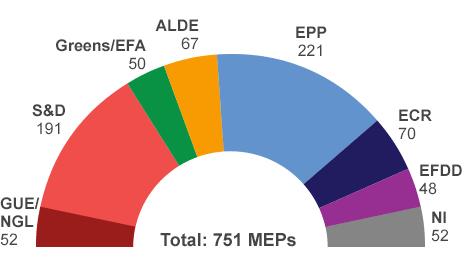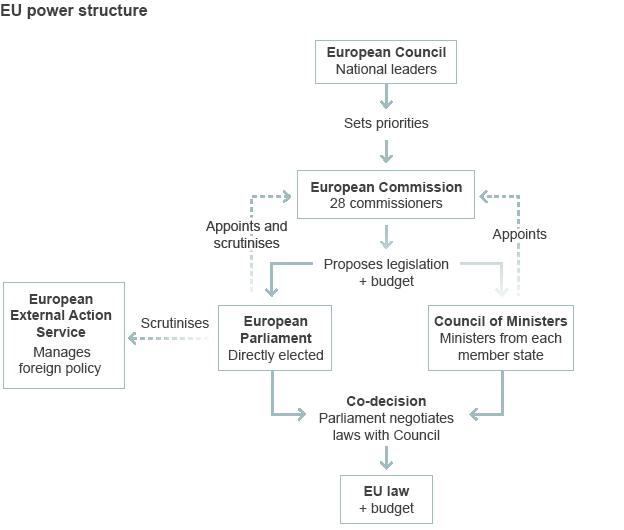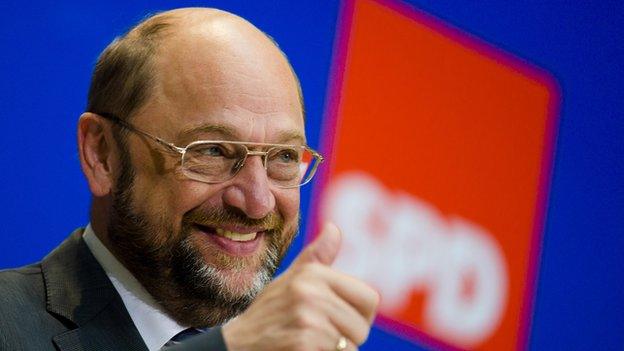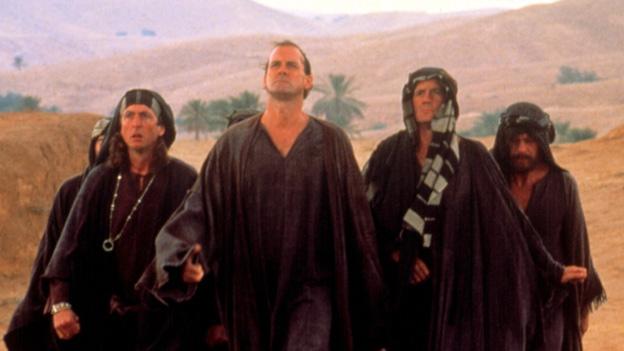How Eurosceptic is the new European Parliament?
- Published
The BBC's Chris Morris gives a quick tour of the European Parliament
The new European Parliament is now in session, with many more Eurosceptic MEPs than before - though not enough to systematically block EU legislation.
Voter discontent over immigration and huge job losses translated into big gains for Eurosceptics of various political hues, more than doubling their representation. About one-third of the 751 MEPs are Eurosceptic.
Some anti-establishment parties have got into parliament for the first time, including Beppe Grillo's Five Star Movement (Italian) and Germany's Alternative fuer Deutschland (AfD).
But the May elections resulted in the centre-right European People's Party (EPP) coming top, albeit with 53 fewer seats. As in the 2009 elections, the centre-left Socialist group (S&D) came second.
These two dominant centrist blocs share the ambition to create a more integrated EU, with the European Parliament at the heart of decision-making. Opponents call them "federalists" and a "European elite" who are undermining national sovereignty.
The centrists have already got their candidates into two top jobs - European Commission president (Jean-Claude Juncker of the EPP) and Parliament president (Martin Schulz of the S&D). Mr Juncker still needs approval by the parliament, but it is clear that a majority backs him.

EPP - European People's Party (centre-right)
S&D - Progressive Alliance of Socialists and Democrats in Europe (centre-left)
ALDE - Alliance of Liberals and Democrats for Europe (liberal)
GUE/NGL - European United Left-Nordic Green Left (left-wing and Eurosceptic)
Greens/EFA - Greens/European Free Alliance (Greens and regionalists/nationalists)
ECR - European Conservatives and Reformists Group (right-wing)
EFDD - Europe of Freedom and Direct Democracy (Eurosceptic)
NI - Non-attached (stands for "non inscrits" - MEPs not in any group, includes many Eurosceptics or anti-EU)
Three members of the European Parliament talk about why they wanted to be an MEP
The 2009 Lisbon Treaty gave the European Parliament an equal role with the Council - ministers from EU governments - in enacting EU legislation. This "co-decision" covers nearly all policy areas, including the EU budget.
MEPs also play a key role in overseeing the EU's foreign policy arm - the European External Action Service - and other EU agencies.
In September MEPs will vet candidates for the Commission, the 28-member executive arm which initiates EU laws. Parliamentary approval is required for the new Commission to take office.

Full sessions of the parliament are held in Strasbourg, France, but MEPs spend most of their time at the parliament building in Brussels.
That expensive monthly commute to Strasbourg is a sore point - last year a majority of MEPs voted to end it. But an EU treaty change is required for that to happen - and France and Luxembourg are against it. Since World War Two Strasbourg has thrived on its image as a bridge between France and Germany.
Eurosceptics point to this as an example of the EU wasting taxpayers' money - but for now Strasbourg is keeping its special place in the EU.
Should EU abolish its Strasbourg building?
- Published1 July 2014

- Published1 July 2014
- Published26 February 2014
